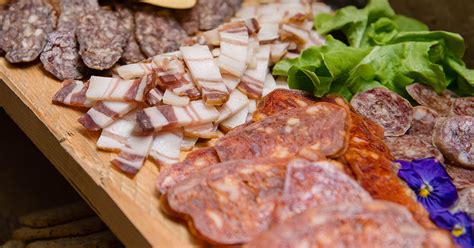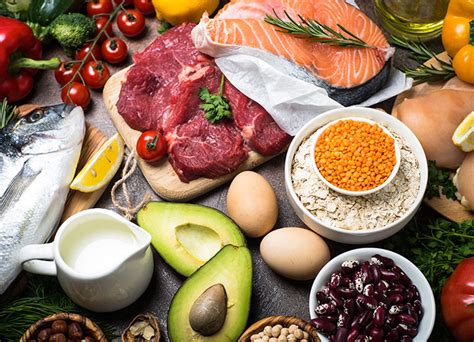What specific dietary considerations are often recommended for men over 50 to help maintain prostate health?

Maintaining prostate health becomes an increasingly important concern for men as they age, particularly after 50. While genetics and lifestyle factors play a significant role, diet is a powerful tool that can significantly influence prostate well-being, potentially reducing the risk of conditions like benign prostatic hyperplasia (BPH) and even prostate cancer. Tailoring your nutritional intake can provide vital support for this crucial gland.
Embrace a Plant-Powered Plate
A diet rich in fruits, vegetables, and whole grains is foundational for overall health, including that of the prostate. These foods are packed with antioxidants, vitamins, minerals, and fiber, all of which combat inflammation and oxidative stress, two key contributors to prostate issues.
- Cruciferous Vegetables: Broccoli, cauliflower, Brussels sprouts, and kale contain compounds like sulforaphane, which have shown promising anti-cancer properties. Aim for several servings per week.
- Berries and Other Fruits: Blueberries, strawberries, raspberries, and citrus fruits are high in antioxidants, including vitamin C, which can help protect cells from damage.
- Whole Grains: Opt for oats, brown rice, quinoa, and whole wheat bread over refined grains. Their fiber content supports digestive health and can help regulate hormone levels.

Prioritize Lycopene-Rich Foods
Lycopene, a potent antioxidant, is particularly highlighted for its benefits to prostate health. Studies suggest that lycopene may help reduce the risk of prostate cancer progression. It’s found abundantly in red and pink fruits and vegetables.
- Tomatoes: Cooked tomatoes, such as those in sauces, paste, or soup, offer the highest bioavailability of lycopene. The cooking process helps release the lycopene, making it easier for the body to absorb.
- Watermelon, Pink Grapefruit, and Papaya: These fruits are also excellent sources of lycopene.
Incorporate Healthy Fats and Omega-3s
While some fats can be detrimental, healthy fats, particularly omega-3 fatty acids, are crucial for reducing inflammation throughout the body, including the prostate.
- Fatty Fish: Salmon, mackerel, sardines, and trout are rich in omega-3s. Aim for two servings per week.
- Nuts and Seeds: Flaxseeds, chia seeds, walnuts, and almonds provide omega-3s and other beneficial compounds. Pumpkin seeds, in particular, are noted for their zinc content, which is important for prostate health.
- Avocado and Olive Oil: Excellent sources of monounsaturated fats, which are heart-healthy and anti-inflammatory.

Key Micronutrients and Beverages
Beyond macronutrients, specific vitamins and minerals play a vital role, as do certain beverages.
- Selenium: Found in Brazil nuts (just one or two provides your daily needs!), seafood, and mushrooms, selenium is an antioxidant that may help protect against prostate cancer.
- Zinc: Oysters are an incredibly rich source, but zinc can also be found in lean meats, beans, and nuts. Zinc is essential for immune function and overall prostate health.
- Green Tea: Rich in catechins, powerful antioxidants that have been linked to a reduced risk of various cancers, including prostate cancer. Consider replacing sugary drinks with green tea.
Foods to Limit or Avoid
Just as important as what you should eat is what you should limit or avoid to protect your prostate:
- Red and Processed Meats: High consumption of red meat (especially well-done or charred) and processed meats (bacon, sausages) has been linked to an increased risk of prostate cancer.
- High-Fat Dairy Products: Some research suggests a potential link between high intake of dairy products and an increased risk of prostate cancer, though more studies are needed. Opt for lower-fat or plant-based alternatives.
- Unhealthy Fats: Trans fats and excessive saturated fats, often found in processed foods, fried foods, and some fast food, can promote inflammation and should be limited.
- Excessive Alcohol: Heavy alcohol consumption can contribute to inflammation and may exacerbate urinary symptoms associated with BPH.
- Refined Sugars and Carbohydrates: These can contribute to inflammation and weight gain, both of which can negatively impact prostate health.

Hydration is Key
While often overlooked, adequate hydration is essential for overall health, including kidney and urinary tract function, which are closely related to prostate health. Drinking plenty of water helps flush toxins from the body and supports the efficient operation of all bodily systems.

Conclusion
For men over 50, a proactive approach to diet can significantly contribute to maintaining prostate health. Focusing on a diverse intake of plant-based foods, particularly those rich in lycopene and omega-3 fatty acids, while limiting red and processed meats, unhealthy fats, and excessive alcohol, provides a strong nutritional foundation. Combining these dietary considerations with regular exercise, maintaining a healthy weight, and routine medical check-ups offers the most comprehensive strategy for supporting prostate well-being throughout the aging process. Always consult with a healthcare professional or a registered dietitian for personalized dietary advice, especially if you have existing health conditions or concerns.









